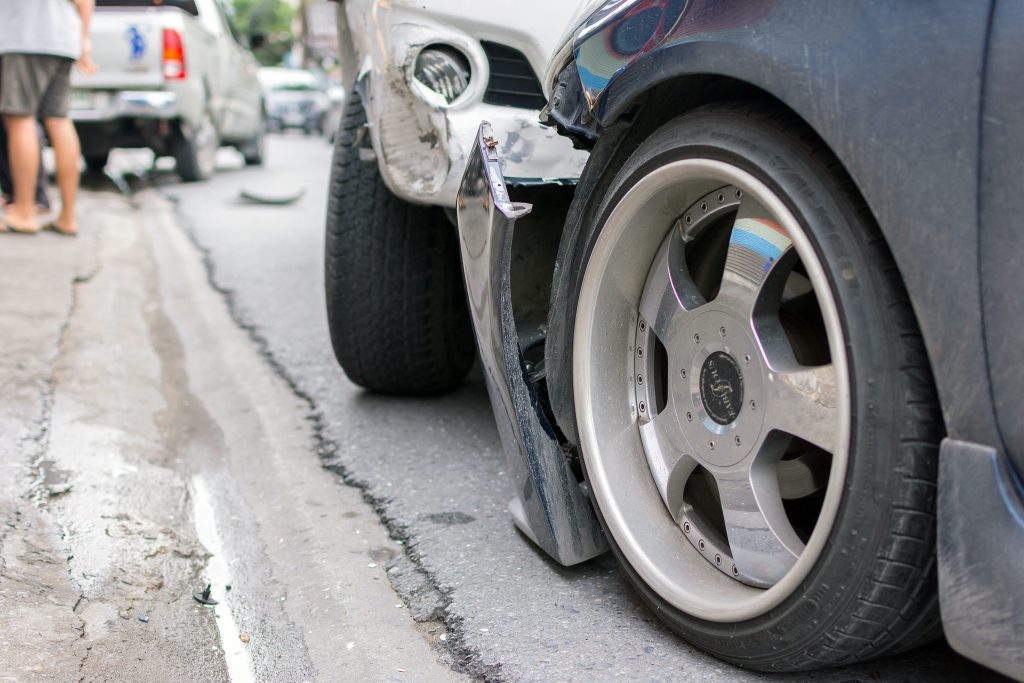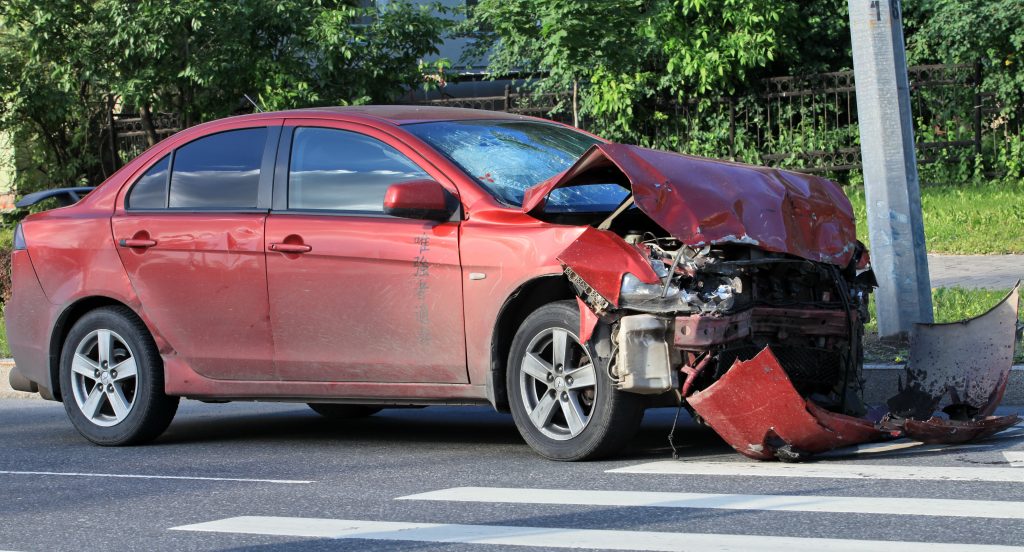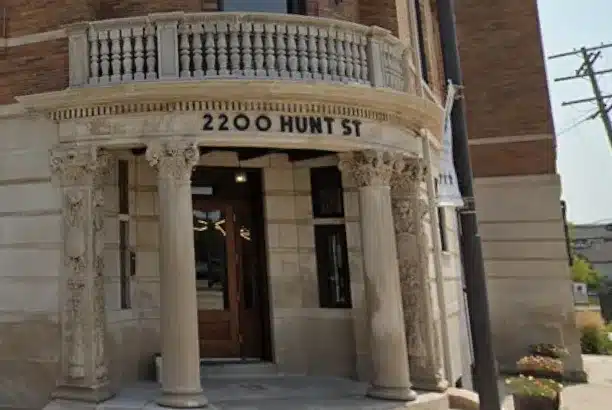What Happens if You are Hit by a Police Car in Texas or Florida?
Getting into a car accident is stressful enough, but when the other driver is a police officer, the situation becomes far more complicated. Many people assume that law enforcement officers are “immune” from liability, but that is not entirely true. Both Florida and Texas have special rules that apply when government employees, including police officers, cause accidents.
If you or a loved one have been hit by a police car, here’s what you need to know about your rights, potential barriers to recovery, and how RTRLAW’s experienced auto accident lawyers can help you pursue justice.
Are Police Officers and Police Departments Immune from Lawsuits?
Both Texas and Florida recognize a legal principle known as sovereign immunity, which limits when and how government agencies can be sued. However, both states have passed laws that create exceptions to this immunity in certain cases, including traffic accidents.
- In Florida, the Florida Tort Claims Act allows victims to bring claims against government entities for negligence, including motor vehicle crashes caused by police officers. However, strict caps and procedural requirements apply.
- In Texas, the Texas Tort Claims Act permits lawsuits against government agencies for motor vehicle accidentsv involving government employees acting within the scope of their employment. Like Florida, Texas imposes liability caps and notice requirements.
In short, yes, you can sue when a police officer negligently causes an accident, but the process is more restrictive than filing a typical car accident lawsuit.
Exceptions for Police Involved Lawsuits for Emergency Situations
One major hurdle in these cases is the emergency response exception. If an officer was responding to a call with lights and sirens activated, and acting within policy, the department may argue they are shielded from liability.
That does not mean you are out of options. If the officer acted recklessly, for example, by speeding through an intersection without ensuring it was clear or failing to follow pursuit policies, liability may still attach. Proving this often requires investigation, evidence from dashcams, witness statements, and sometimes expert testimony.
Damage Caps and Limitations for Government Entity Related Accidents Per State
Unlike typical auto accidents, claims against government entities are capped:
- Florida: Generally, $200,000 per person and $300,000 per incident, unless the legislature passes a claims bill allowing more
- Texas: Up to $250,000 per person and $500,000 per incident for state government entities; $100,000/$300,000 for smaller local entities
These caps can create real challenges in catastrophic injury or wrongful death cases. Still, securing the maximum allowed can make a significant difference for medical bills, lost wages, and pain and suffering.
Notice Requirements for Filing a Claim Against a Government Entity
If you’re hit by a police car in Florida or Texas, you can’t file a lawsuit right away; both states require you to first submit a formal written notice to the government agency involved. Missing these deadlines can permanently bar your claim.
- Texas: You must provide written notice to the city, county, or state agency within 180 days of the crash, outlining when and how it happened. You then have two years from the date of the accident to file your lawsuit.
- Florida: After the March 2023 tort reform, you now have two years to file your claim and lawsuit. A written notice must be submitted within that time, and the government has 180 days to investigate before you can proceed to court.
Because these deadlines are strict and easy to miss, it’s crucial to contact an attorney right away. RTRLAW’s personal injury lawyers can file the required notice on time and ensure your right to recover compensation is protected.
Soraya Bryant (Raya)
Highly recommend this law firm, I put my trust in RTR and they over delivered. Im forever grateful, and a lifetime client.
Who Pays for the Damages After a Police Caused Accident?
When you are hit by a police vehicle, the government entity that employs the officer (city, county, or state agency) is usually financially responsible, not the officer personally. In certain cases, other insurance policies, such as your own uninsured/underinsured motorist coverage, may also come into play.
This makes it crucial to have a lawyer review all potential sources of recovery to ensure you receive the compensation you deserve.
What Steps Should You Take After Being Hit by a Police Car?
Being involved in an accident with a police vehicle can be intimidating and confusing. However, what you do in the moments and days that follow can make a major difference in your safety, your recovery, and your ability to pursue compensation. Following the right steps immediately helps protect your health and your legal rights.
If you are involved in a collision with a police vehicle, it is critical to:
- STILL Call 911 immediately: report the accident and request medical assistance
- Document everything: take photos of the scene, vehicle damage, and visible injuries
- Get witness information: bystanders may be critical in proving fault
- Seek medical attention right away: even if symptoms seem minor, head and spine injuries can develop later
- Do not make recorded statements: avoid giving official statements to insurance adjusters without legal advice
- Contact an experienced attorney quickly: strict notice deadlines apply for government claims in both Texas and Florida. Missing them can bar your case entirely
After an accident involving law enforcement, time is of the essence. Prompt action, careful documentation, and early legal representation can prevent costly mistakes and ensure your rights are protected. RTRLAW’s experienced car accident injury attorneys can guide you through every step; from gathering evidence and meeting filing deadlines to negotiating fair compensation on your behalf.
RTRLAW Can Help & Get Justice for Your Injuries
These cases are complex, involving tight deadlines, detailed procedural requirements, and aggressive defense tactics from government attorneys. At RTRLAW, our attorneys have over three decades of experience handling high-stakes personal injury claims across Florida and Texas.
We know how to:
- Investigate the accident thoroughly.
- Determine whether sovereign immunity applies.
- Identify all potential sources of compensation.
- Navigate strict notice and filing deadlines.
- Negotiate aggressively and, if necessary, litigate in court.
Our goal is simply to protect your rights and fight for the maximum compensation available under the law.
Being hit by a police car can leave you feeling powerless, but you do have rights. Both Florida and Texas allow claims against government entities when law enforcement officers cause accidents, though the rules are complicated and damages may be capped.
The key is acting quickly and working with an attorney who understands the system. At RTRLAW, we will fight to hold negligent drivers, even those in uniform, accountable.
If you or a loved one suffered after being injured in an accident with a police vehicle, call RTRLAW today at 1-833-HIRE-RTR (1-833-447-3787) for a free, confidential consultation.
Revision History:
- Jan 13, 2026 at 6:38 am by Nicholas Thompson (displayed above)
- Jan 13, 2026 at 6:38 am by victor


 CALL US NOW
CALL US NOW TEXT US NOW
TEXT US NOW































